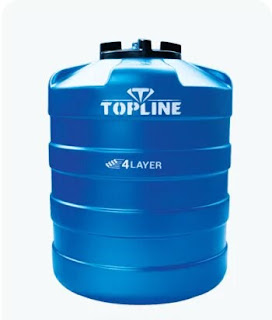Why is HDPE pipe used for industrial applications?
Industrial uses that utilize HDPE pipes include desalination plants, agricultural and lift irrigation, chemical lines, industrial water transportation, coal handling in mines, and chemical lines. The high tensile strength, sturdiness, and lightweight qualities of HDPE pipelines have contributed to their widespread use. Because HDPE pipe is so simple for plumbers to repair, these high-density polyethylene pipelines are frequently seen in various locations. Industrial facilities account for most of those locations where HDPE coil pipe is used incredibly effectively.
Easy to install:
Additionally, HDPE pipe is simpler to place than most other materials. This is due to HDPE plastic's mass, which is 1/8 that of steel. It is incredibly lightweight. The material is simpler to handle and install because it is light. Additionally, it means you will only need to spend as much on heavy lifting tools as you would on other pipe materials, saving you money. The adaptability of HDPE makes it simple to put in any environment.
Cost-Efficient:
Due to its simple installation and variety of uses, HDPE is also a cost-effective substance for pipes and sheets. HDPE pipes require fewer fittings overall, which reduces work and setup time. It can also be joined by welding to be smooth and leak-free, saving on labor and supplies. Your return on investment will be higher because you spent less on work, materials, and installation.
Low expense of installation:
Utilizing HDPE pipes has several financial benefits, motivating businesses to switch to HDPE pipes for long-term use. HDPE pipe installation uses low-cost techniques like slide lining and horizontal directional drilling. Since HDPE pipes are lightweight, heavy lifting machinery is not required during installation. This enables significant labor and installation cost reductions.
Resource flow:
Any material can be affected by the pipe used to transport it in terms of how it moves throughout the system. The interiors of HDPE pipes are designed to maximize flow speeds, which is one of their advantages for industrial uses. The HDPE pipe maintains constant high-velocity fluid flows over a wide temperature range. It must be met for your upcoming project, and think about how HDPE pipe can help you complete the task successfully.
Summing it up:
Producers of HDPE pipes meet the exacting specifications of numerous business and industrial projects. Due to their exceptional durability, HDPE pipelines are the best choice for laying on steep and uneven terrains. They can follow the land's contours due to their flexibility. In addition to their resilience, HDPE pipes have a low specific weight, excellent chemical resistance, excellent weldability, exceptional abrasion resistance, and powerful weathering resistance.
Also read: CASING PIPE- ALL YOU NEED TO KNOW ABOUT




Comments
Post a Comment